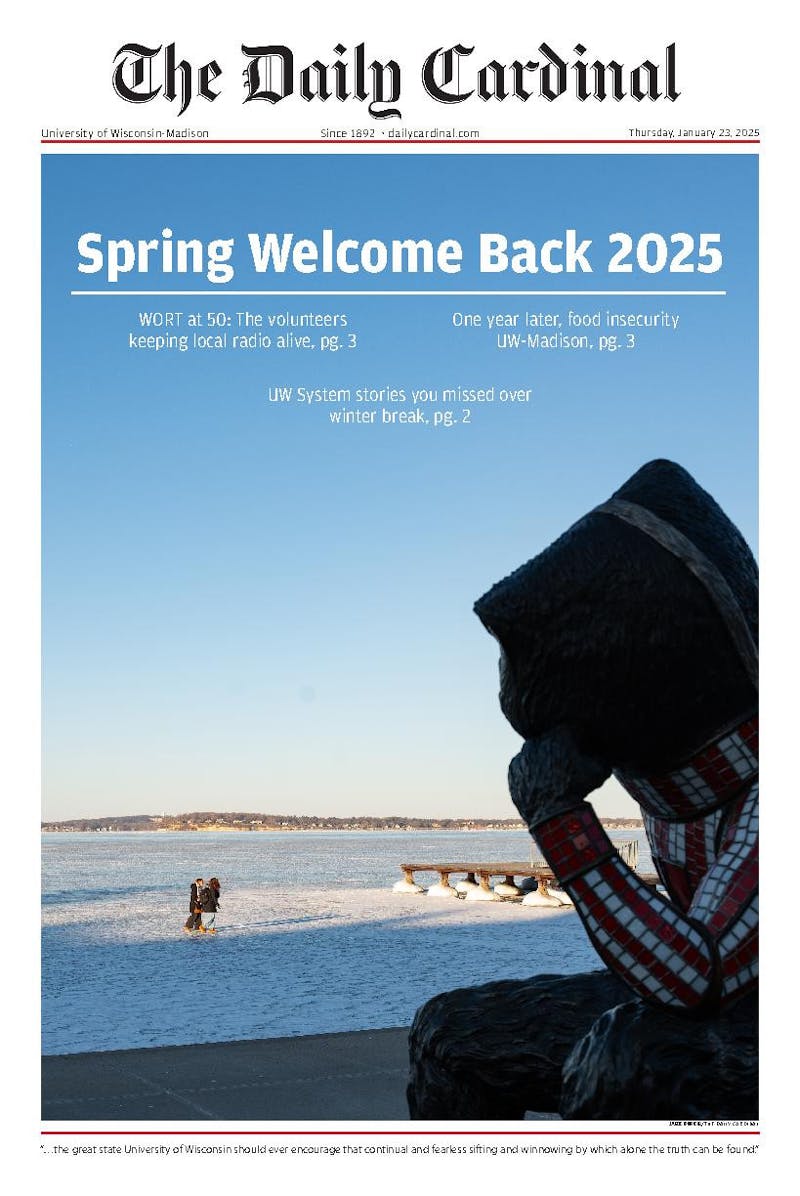Less than two weeks ago, 680,000 concurrent viewers watched Richard “Ninja” Blevins play “Fortnite: Battle Royale” on Twitch, a new record for the video platform.
It was a record Blevins had already broken back in March, when 628,000 watched him play the same game with rap mogul Drake.
Another milestone occurred last year, as the “League of Legends” Mid-Season Invitational more than tripled the number of Super Bowl viewers. With a larger audience than ever, video games are as much a mainstay of pop culture as music and film.
The industry is no longer limited to niche crowds. A recent Pew study revealed 50 percent of college students play video games often or occasionally. For the students who do, UW-Madison has no shortage of clubs to join.
Jared Simonsen, president of the Madison Esports Club, sat down with us to discuss the rising popularity of competitive video games.
When the club was founded in 2009, it centered around a single game — “League of Legends,” a multiplayer online battle arena (MOBA) released that same year. “League’s” success has been essential in evolving the competitive scene.
Today, the student organization has expanded to having teams for eight different games — nine, if we're counting “Tom Clancy’s Rainbow Six Siege,” a game whose team is still in search of collegiate tournaments.
According to Simonsen, there are three main factors to decide which games the club will compete in:
“Outlets to play, community to play with and someone taking the lead to find those tournaments and organize a team.”
While video game systems are brought to the club’s social events, competitions are played exclusively on PC: It’s why there are no teams for “Battlefield,” “Call of Duty” or other titles with predominantly console-based communities.
“We looked into having ‘Call of Duty’ when ‘Black Ops 3’ was out, but all of ‘Black Ops 3’s’ tournaments were run through PS4, so it was really hard to organize that [and] form a team that could practice together,” Simonsen said.
There are still console games with a strong competitive presence. “Super Smash Bros.” is an established esport, but other Nintendo titles like “Splatoon 2” and “Arms” are not — even though they want to be. This tends to complicate esports as a whole.
“Although it’s growing [and] has all this support, it’s a weird medium because it has to have both support from the developers and the fanbase wanting to compete,” Simonsen said. “It’s very interesting to see what becomes an esport.”
With the explosive success of “Fortnite” and the battle royale genre as a whole, there are sure to be more teams added to the club — as was the case with “PlayerUnknown’s Battlegrounds.” Only time will tell what other titles end up joining the current lineup.
Madison Esports has also expanded its event opportunities, as the club has gone from hosting in-house LAN parties to travelling nationwide for tournaments. Other universities have made even greater strides to legitimize the medium.
In 2016, the University of California, Irvine opened a 3,500 square foot arena on campus for the school’s esports teams. Simonsen toured the arena this past summer as part of a leadership conference, with Blizzard Entertainment — the creators of “Overwatch,” “Heroes of the Storm” and “Hearthstone” — covering travel expenses.
With over 70 high-end computers complete with Logitech accessories and Vertagear gaming chairs, Simonsen said it’s “the dream of what every school should strive to look like for an esports facility.”
Whereas college athletes get scholarships from their respective schools, members of esports teams receive similar funding from third parties. Last year, all six players from Madison’s Division 1 “League of Legends” team were awarded with $6,000 scholarships from developer Riot Games.
The club is also partnered with Tespa, a nonprofit collegiate esports organization affiliated with Blizzard Entertainment. This partnership allows UW-Madison’s teams to compete against other universities throughout North America.
Promoting Madison Esports on social media has played a pivotal role in recruiting new members. Simonsen said prospective students have actually reached out to the club and made their decision to attend UW-Madison for the chance to play on a Big Ten team.
The club’s competitions are often streamed online, providing another way to experience tournaments for students who wish to spectate instead of participate. In past interviews, Simonsen has been asked why people would want to do this.
He normally responded to the question with a question:
“Why do you watch sports?”
It’s an interesting parallel to draw, as most of us aren’t questioned about watching football or basketball games when we could be playing these sports ourselves.
When it comes to whether esports should be considered the same as traditional sports, Simonsen explained how its supporters are of two different mindsets: There are those who want it to be viewed in the same light as any other sport, and there are those who simply want it legitimized as a form of competition rather than stigmatized.
Simonsen shares the latter sentiment, as many in the esports community hope to attain this legitimacy.
“I want it to be seen and not questioned,” Simonsen said. “It’s not just people sitting playing video games, it’s people who are trying to become the best [and] want to represent a school or something more. Being able to recognize that is one of the biggest things I want to see in the future.”
One organization that has acknowledged this recognition is the NBA, which began the inaugural season for its NBA 2K League this past Tuesday.
The Milwaukee Bucks and 16 other basketball teams from the league have formed esports groups and drafted players to compete in “NBA 2K18,” further showcasing the mainstream growth of competitive video games.
As esports continue to become more popular, so, too, will organizations like the NBA 2K League. For UW students with an interest in the medium, the Madison Esports Club is a great place to start.






